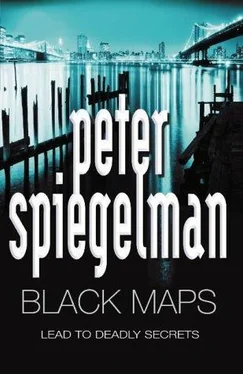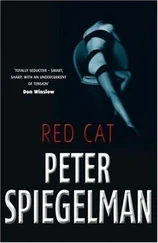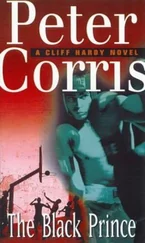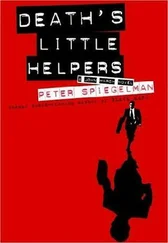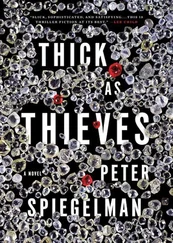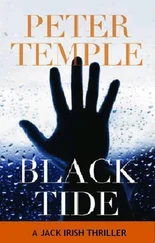Peter Spiegelman - Black Maps
Здесь есть возможность читать онлайн «Peter Spiegelman - Black Maps» весь текст электронной книги совершенно бесплатно (целиком полную версию без сокращений). В некоторых случаях можно слушать аудио, скачать через торрент в формате fb2 и присутствует краткое содержание. Жанр: Криминальный детектив, на английском языке. Описание произведения, (предисловие) а так же отзывы посетителей доступны на портале библиотеки ЛибКат.
- Название:Black Maps
- Автор:
- Жанр:
- Год:неизвестен
- ISBN:нет данных
- Рейтинг книги:4 / 5. Голосов: 1
-
Избранное:Добавить в избранное
- Отзывы:
-
Ваша оценка:
- 80
- 1
- 2
- 3
- 4
- 5
Black Maps: краткое содержание, описание и аннотация
Предлагаем к чтению аннотацию, описание, краткое содержание или предисловие (зависит от того, что написал сам автор книги «Black Maps»). Если вы не нашли необходимую информацию о книге — напишите в комментариях, мы постараемся отыскать её.
Black Maps — читать онлайн бесплатно полную книгу (весь текст) целиком
Ниже представлен текст книги, разбитый по страницам. Система сохранения места последней прочитанной страницы, позволяет с удобством читать онлайн бесплатно книгу «Black Maps», без необходимости каждый раз заново искать на чём Вы остановились. Поставьте закладку, и сможете в любой момент перейти на страницу, на которой закончили чтение.
Интервал:
Закладка:
“I don’t have a gun on me today,” I said. “Maybe next time.” She gave a little snort at this.
“Don’t cops always have guns?” she asked.
“Yeah, but I’m not a cop.”
“Just a good citizen, huh? We’re just lucky you came by? You look like a cop to me.” Everything she said was steeped in a deep cynicism. I liked her.
“I used to be a cop. And I didn’t just come by. I was actually looking for you.” She didn’t like this. She stopped working, but did not look up at me. When she started again she was tense, ready to flee at any moment.
“Look, I’m not here to give you trouble, and I’ll pay you for your time. I just want to ask you a couple of questions,” I explained in my best sincere, nonthreatening manner. She was having none of it. She laughed derisively.
“ ‘I just want to ask you a couple of questions.’ Nothing good ever started with that phrase, mister,” she said.
“Here’s almost three hundred bucks, for nothing-whether you talk to me or not.” I held out the wad of cash I’d taken from the kids.
“Yeah, I see how much that cost you,” she said, but she was looking at the money.
“I’ll throw in a hundred more, for five minutes.” She squinted at me and at the money, still suspicious.
“I hope they’re easy questions. My mind’s not what it used to be,” she said, and took the cash.
“There’s a bodega on Ninety-eighth and Madison, where you can make phone calls and send faxes. Did you send a fax from there eight days ago?” She knew what I was talking about, but she hesitated. Not nervous, just cautious.
“I know the place. And, yeah, I was in there with some stuff to send last week. Guy paid me fifty bucks to do it. Twenty-five up front, twentyfive when I brought him back the little slip that says it went through.”
“Did you know the guy, ever see him before?” I asked.
“Nope. Just came up to me in the park. I was sitting over near the playground. He walks up and asks if I want to make some money,” she answered.
“What did he look like?”
“He was like you,” she said, as if that told me all I needed to know.
“What do you mean he was like me? He was my height? My age? My hair color? His face looked like mine?”
“No, no. He was taller than you, and older, maybe forty-five or fifty. Built like you, though, kind of lean and wiry, but bigger in the shoulders. And not so pretty,” she said, and laughed a little.
“That’s very nice, thank you. Then what did you mean when you said he was like me?”
“I mean he acted like you-he acted like a cop,” she explained, as if I was a little slow.
I thought about this for a while. “What makes you say that? Did he say something? Did you see something?”
“You can just tell. Like with you and those shitheads. You smacked them around good, but you weren’t mad or anything. It’s like you didn’t care one way or another about them, like they were just things. And the way you talked to them-you needled them, but mostly to show them you could. The fax guy, he acted the same way to this old juicer who was lying on the bench next to mine. The old wino hears this guy talking to me, so he shuffles on over, looking to make a buck. This guy just stares at him for a while, all cold and scary. Then he puts his hand on the wino’s shoulder and does something that makes the old guy go white as a sheet, practically drops to his knees. Then he tells the old guy, real matter-of-fact, to get the fuck out of his sight before he gets his arm torn off. Like you with those kids, see?” I saw. It’s always nice to hear that you come across like a psychopath.
She finished collecting the cans and bags, and I helped her push the cart back onto the footpath. She didn’t have much else to tell me. The guy had approached her in the morning; he’d been alone. They’d walked to the store; she’d seen no sign of a car. He’d waited for her outside, around the corner. He was minimally polite, but said nothing that wasn’t necessary to conduct their business. He’d paid her in tens and fives. He was wearing dark pants, dark shoes, some sort of short jacket in dark blue, zipped to the neck, a dark blue baseball cap-no insignia. What hair she could see was short and dark. No accent that she noticed. No scars, no birthmarks, no jewelry.
I asked her name and she hesitated, looking at me and looking away. Finally she told me. Faith Herman. I paid Faith the extra hundred, and gave her a card with my number on it. I told her to call if she thought of anything else or saw the guy again. She looked skeptical, like I’d told her to call when she’d won the lotto.
Chapter Five
I had lunch at a coffee shop on upper Madison. Afterward, I leaned in the sun outside the Cooper-Hewitt and made some calls. The first was to Tom Neary, my contact at Brill. Neary is ex-FBI, and I’d met him when I was a cop and he was working out of the resident agency in Utica. We’d gotten to know each other pretty well, at least professionally, well enough to do favors for each other every now and then. He’d joined Brill about the same time I’d moved back to the city, and not long ago had taken over their financial services group in the metro area. I called three different numbers, but the best I could do was his voice mail.
Then I called Pierro. I gave my name to his secretary and she told me, in hushed tones, that Mr. Pierro was working at home today, but had left instructions that I was to be given his number. She said it like he’d told her to give me his firstborn. I called him at home. He answered on the first ring, and said to come over any time that afternoon. He gave me an address on Park Avenue in the low 80s, a short walk from where I was.
The holiday tipping season was approaching, and all the buildings I passed were scrubbed, waxed, and polished to perfection. Their door-men were spit-shined too, and turned out like a bunch of Soviet admirals. Pierro’s wore a long coat with big epaulets and lots of brass, and it probably outweighed him by ten pounds. He hauled open the door and pointed me across an acre of marble to the concierge, who announced me on the house phone. When he got the okay from above, he pointed me to the elevators.
“To the Pierros, Billy,” he told the elevator man.
Billy closed the metal gate and worked the controls. We rose slowly. The old-fashioned elevator, the staff in full dress, the smells of wax and oil soap and brass polish, reminded me of the building that I’d grown up in. It was the same prewar vintage as Pierro’s place, and just a few blocks south. It was my brother Ned’s home now, and I hadn’t set foot inside for months.
Billy pulled back the metal gate, and I stepped into a long, quiet hallway. It had pale gray walls and a high ceiling and thick gray carpet. It was lit softly and evenly from frosted glass sconces. At either end was a gleaming black door. Billy pointed to the right and waited silently while I knocked and was admitted.
Pierro answered. He was the country squire today, in a plaid flannel shirt, tan corduroys, and loafers. He smiled, and we shook hands.
“Hey, John, you made it,” he said.
Pierro seemed relaxed and glad to see me, like I’d come over to drink a beer and watch the game. He closed the door behind me. We were in a high-ceilinged, rectangular foyer, maybe three hundred feet square. The walls were a buttery yellow, and they were hung all around with photographs in black wooden frames. The heavy cornice molding was painted a sage green, and a green and yellow carpet with an intricate floral pattern covered much of the hardwood floor. In the center of the room was an oval table in black wood. It was empty but for a vase of yellow roses, a stack of letters, and a set of keys on a silver ring. To the left, a doorway led to a short hall that widened into a butler’s pantry. Beyond it I saw part of a large kitchen with black stone counters and cream-colored cabinets. On the long wall opposite us, the foyer opened onto a wide hallway that ran left and right. A child’s laughter came from far off.
Читать дальшеИнтервал:
Закладка:
Похожие книги на «Black Maps»
Представляем Вашему вниманию похожие книги на «Black Maps» списком для выбора. Мы отобрали схожую по названию и смыслу литературу в надежде предоставить читателям больше вариантов отыскать новые, интересные, ещё непрочитанные произведения.
Обсуждение, отзывы о книге «Black Maps» и просто собственные мнения читателей. Оставьте ваши комментарии, напишите, что Вы думаете о произведении, его смысле или главных героях. Укажите что конкретно понравилось, а что нет, и почему Вы так считаете.
